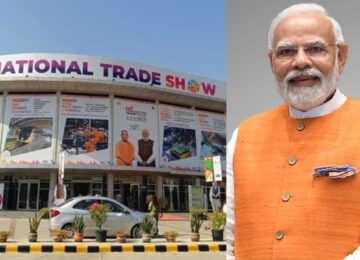In a historic development reflecting the strengthening of bilateral defense and strategic ties, India and the United Kingdom have finalized a $468 million missile deal aimed at enhancing India’s naval and air defense capabilities. The agreement is an important milestone in the growing cooperation between the two countries, especially in the fields of defense technology, maritime security and strategic cooperation in the Indo-Pacific region.
The deal was announced after a series of high-level talks between defense officials and representatives of the two countries. According to Defense Ministry sources, the agreement primarily involves the procurement and joint production of advanced surface-to-air missile systems designed to improve India’s naval defense capabilities.
To promote India’s defense modernization drive
The missile deal comes as part of India’s ongoing efforts to modernize its armed forces and reduce dependence on traditional defense suppliers. Under the ‘Make in India’ and ‘Atmanirbhar Bharat’ initiatives, India is encouraging domestic production and technology transfer in defense manufacturing.
Officials said the deal includes substantial provisions for technology transfer, joint research and skill development, enabling India to gradually build indigenous expertise in next-generation missile systems. The UK defense industry, particularly MBDA UK, will collaborate closely with Indian defense manufacturers such as Bharat Dynamics Limited (BDL) and DRDO to ensure local production and assembly.
According to defense analysts, the partnership reflects the deep trust between the two countries and underlines the UK’s growing interest in playing a larger role in India’s defense ecosystem. This deal is also expected to create employment.
A New Chapter in India-UK Strategic Relations
The India-UK missile agreement is more than a defense transaction – it represents a strategic alignment driven by shared geopolitical interests. Both countries have stressed the need for closer military cooperation in light of the changing power dynamics in the Indo-Pacific region, where China’s growing influence has prompted new alliances and defense cooperation.
British Defense Secretary Grant Shapps described the deal as “an important step in UK-India defense cooperation” and stressed that it will enhance regional stability and strengthen the ability of both countries to respond to global security challenges.
Similarly, Indian Defense Minister Rajnath Singh described the agreement as a symbol of India’s deepening strategic partnership with the UK, noting that both countries share a “mutual commitment to peace, stability and security in the Indo-Pacific region”.
The deal also aligns with the broader framework of the India-UK 2030 Roadmap, which envisions wide-ranging cooperation across multiple domains, including trade, climate, education, technology and defence.
Indo-Pacific focus and maritime security
The Indo-Pacific has become the focus of India’s strategic priorities, and maritime security remains a key area of cooperation with the UK. The missile systems included in the deal are expected to enhance the combat readiness of the Indian Navy, especially against air and missile threats.
In recent years, both countries have conducted several joint naval exercises, including the Konkan series, to improve interoperability between their militaries. The new deal is expected to complement these efforts by providing India with state-of-the-art defense capabilities and strengthening deterrence along its maritime borders.
Defense experts believe that such collaborations send a strong signal about the convergence of interests between India and Western democracies in maintaining freedom of navigation and upholding international maritime law.
Technology Transfer and Future Collaborations
One of the most significant aspects of this deal is its emphasis on co-development and co-production, rather than mere purchase. The agreement stipulates that a large portion of the missile components will be manufactured in India, ensuring substantial local value addition and promoting India’s self-reliance goals.
British defense firms will provide technical expertise and design support, while Indian counterparts will manage production, integration, and testing. This model of cooperation is expected to serve as a template for future Indo-UK defense projects, potentially covering areas such as cybersecurity, artificial intelligence, and space defense.
According to officials, discussions are also underway for joint research in hypersonic and next-generation propulsion systems, signaling a deeper commitment to technological innovation in defense.
Strategic Implications and Global Response
The announcement of this deal has garnered attention from global defense watchers, who view it as part of a broader trend of India diversifying its defense partnerships. Traditionally reliant on Russia for a large portion of its weaponry, India has been gradually expanding its defense ties with Western nations, including France, the US, and now the UK.
This diversification not only strengthens India’s strategic autonomy but also signals its growing role as a regional security provider in the Indo-Pacific. The UK, meanwhile, is seeking to establish a stronger post-Brexit footprint in Asia, and deeper defense cooperation with India fits squarely within that objective.
Conclusion
The $468 million India-UK missile deal stands as a testament to the evolving strategic partnership between the two democracies. It signifies a mutual commitment to defense innovation, regional stability, and technological collaboration.
For India, the agreement represents another step forward in its quest for self-reliance in defense manufacturing, while for the UK, it reaffirms its strategic presence in Asia. Together, the two nations are not just advancing defense cooperation but shaping a new chapter in global security architecture—one that emphasizes shared values, technological progress, and collective resilience in an increasingly uncertain world.













